Everyone knows the Good Housekeeping seal, which carries a two-year warranty on products that have it and pretty much proves that the product’s manufacturer advertises in Good Housekeeping magazine. Now the venerable publication has a new seal which is supposed to denote environmentally friendly household products and, according to Slate’s Paul Smalera, is at best meaningless and at worst draws consumers’ attention away from actual environmentally friendly products.
green
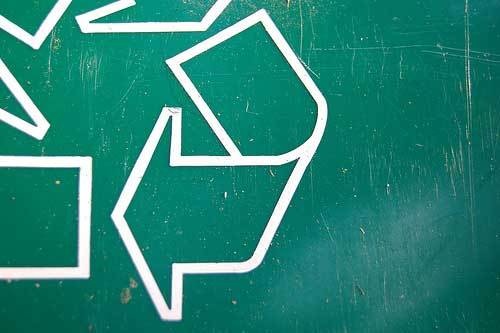
How Can I Tell When A Product Is Being Greenwashed?
Sure, some people want to buy environmentally friendly products, and that’s great. The problem is that marketers understand these impulses well, and want to take advantage of them without always offering products that live up to the claims. What to do? ShopSmart has some answers.
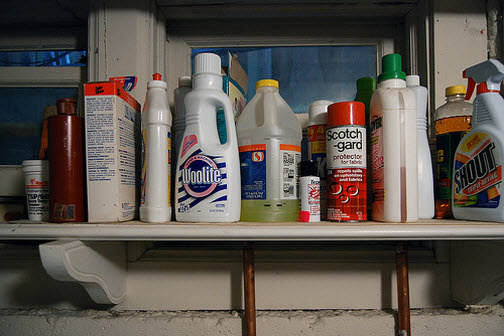
Make Your Own Green, Cheap Cleaning Products
When McGyver wants to clean his kitchen, he doesn’t need any fancy Clorox or 409. Give him some baking soda, vinegar and lemon juice and he’ll create a clean-up bonanza of the likes the world has never seen. And he’ll catch seven bad guys and utter a catch-phrase quip, all before the commercial break.

Toothpaste Purchase Results In 3-foot Long Receipt
CVS asks: How about some dead trees and a bunch of ads with that purchase? Not in so many words, of course: that would actually give shoppers a choice.
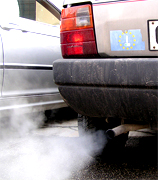
Automakers: Forget 35.5 MPG, We'll Just Improve A/C
President Obama wants car makers to start making 35.5 MPG cars by 2016. Instead of improving fuel efficiency, automakers could very well just take the cheaper road of making the A/C less wasteful, thanks to what Jalopnik calls “a hummer-sized loophole” in the federal regulations. [Jalopnik] (Photo: Simone Ramella)

Ford Factory Dumping SUVs For Small "Green" Cars
Demand for bigass SUVs just isn’t what it used to be. Ford says it is spending “550 million to convert a plant, which previously produced trucks and SUVs, into a “green” manufacturing complex building small fuel-efficient and electric cars,” says CNN.

Is Buy.com Friendlier To The Environment Than Brick And Mortar Stores?
A study by the Green Design Institute at Carnegie Mellon University in Pittsburgh states that when comparing getting a flash drive from Buy.com versus a physical retailer, Buy.com ends up being about 30% less damaging to the environment. To reach their conclusion, the researchers compared transportation, packaging, warehousing, and energy usage both by the consumer and the retailer.

Six D.I.Y. Tips For Cleaning Greenly And Cheaply
Harsh chemicals aren’t just bad for you and the environment, they’re bad for your wallet too. Cleaning most things, from clothes to your kitchen, can be done greenly and cheaply with these six nifty do-it-yourself cleaning recipes from Consumer Reports…
../../../..//2009/01/12/just-what-the-hell-is/
Just what the hell is “organic” dry cleaning? Nobody really knows. [NYT]
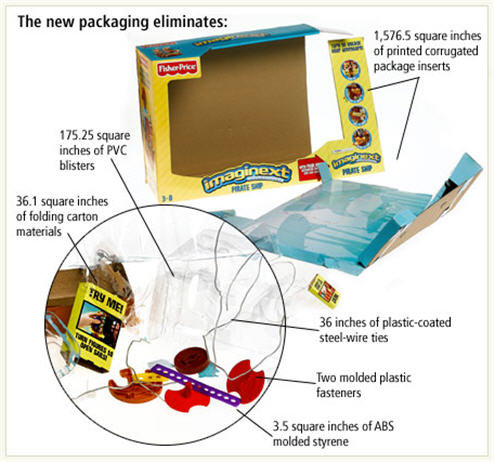
Mom, Will You Open This? Amazon Announces "Frustration Free" Packaging
Anyone who was once a child or has been around a child during the holidays knows that toy packages are pure evil straight from hell. Now, according to a letter currently on the front page of Amazon.com, they’ve decided to dedicate themselves to removing this scourge from your lives.
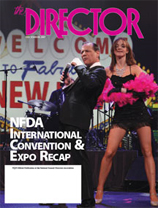
Funeral Association Scaring People Away From Green Burials?
Funeral homes are being scared away from “green” burial options by an indemnification form the National Funeral Directors Association included in one of their recent magazine issues, according to an open letter posted on Funeral Consumers Alliance. The language basically suggests that if you don’t use mainstream funeral methods, in terms of the embalming and type of coffin used, you won’t be able to show grandma because she’ll be all rotted, the grave will turn into a sinkhole, and you might not be able to find where the body was buried years down the road. Here’s the specific language they’re using…

Amazon Ships 8 Plates In 13 Boxes
Reader Gibson ordered 8 plates from Amazon, and they arrived in 13 boxes. We’re sure the operations research management scientists at Amazon shipping have an answer as to why, in the context of the entire shipping infrastructure, this was the most cost-effective solution, but it escapes us mere mortals. Full pic inside.
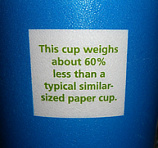
Sam's Club Pretends Its Polystyrene Cup Is Green
Gregg saw this cheerful environmentally-friendly message on the side of his Sam’s Club soda cup. Wait, what? We guess it saves Sam’s Club fuel costs to ship the cups, but that sounds more like a profit-friendly quality. Gregg notes another benefit of the cup: “[it] may never biodegrade but at least it’s easy on my drinkin’ elbow.”
../../../..//2008/07/01/a-consumer-reports-study-finds/
A Consumer Reports study finds that 79% of consumers surveyed say they plan on buying a car with better fuel economy. [Consumer Reports]
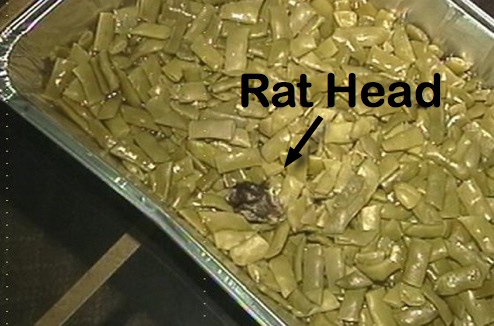
Allen's Bribes Customers Who Find Dead Rat Heads In Their Italian Green Beans
Texas wedding caterer Dale Cane found a dead rat’s head in one of the twenty cans of Allen’s Italian Green Beans he bought at Walmart. Allen’s quickly offered Cane $200 if he agreed to keep quiet, and assured him that “the Pasteurization process renders the product sterile and completely safe for consumption.” Even worse, this isn’t the first time a dead rat’s head popped up in a can of Allen’s Green Beans…
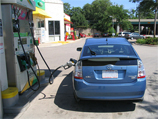
Hybrids Better Values than Other Car Options
The conventional wisdom around hybrid cars has been that they will save a significant amount on gas costs during their lifetimes and are better for the environment, but that those benefits come at a cost — a higher initial price that makes a hybrid an overall more expensive option for transportation. But Yahoo Green has an analysis showing this is not the case when all of the various economic factors surrounding a car purchase are considered. In fact, it turns out that buying a hybrid is a better financial move than purchasing a comparable non-hybrid car because of the following reasons:



